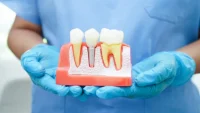You’ve been feeling off lately, perhaps a bit more fatigued than usual or noticing changes in your skin, hair, or nails. These subtle signs could be indicators of underlying nutritional deficiencies that might be impacting your overall well-being. By understanding how to pinpoint these deficiencies and selecting the right supplements, you can take proactive steps towards optimizing your health. But how exactly can you identify these deficiencies and correct them effectively with the appropriate supplements? Let’s explore some key insights to help you on this journey to better health.
Signs of Vitamin D Deficiency
If you experience symptoms like fatigue, bone pain, or muscle weakness, you may be showing signs of vitamin D deficiency. Vitamin D is essential for calcium absorption, bone health, and immune function. One crucial enzyme involved in vitamin D metabolism is prohydrolase. When vitamin D levels are inadequate, the activation of Prohydrolase is impaired, leading to potential deficiencies.
To enhance the absorption of vitamin D, consider supplements containing noolvl, a compound that aids in nutrient uptake. Additionally, carnosyn, a form of beta-alanine, may also support vitamin D utilization in the body. If you suspect a vitamin D deficiency, consult with a healthcare provider to determine the appropriate supplementation and dosage for your needs.
Symptoms of Iron Deficiency
Experiencing symptoms such as fatigue, pale skin, and shortness of breath could indicate a potential iron deficiency. Iron is crucial for carrying oxygen in your blood, and when levels are low, your body struggles to perform this essential function efficiently.
If you find yourself constantly feeling tired or notice that your skin has lost its healthy color, consider getting your iron levels checked. In addition to traditional iron supplements, you can explore innovative options like Instaminos;and Astragin, which can enhance the absorption of iron in your body.
Recognizing Vitamin B12 Deficiency
Feeling fatigued, tingling in your extremities, and experiencing cognitive difficulties could be signs of a potential vitamin B12 deficiency. This essential vitamin plays a crucial role in red blood cell formation and neurological function. If you’re a vegan or vegetarian, over 50 years old, or have gastrointestinal conditions affecting nutrient absorption, you may be at a higher risk for deficiency.
Other indicators include weakness, pale skin, and constipation. If you suspect a vitamin B12 deficiency, consult your healthcare provider for testing. Supplementing with vitamin B12 in the form of methylcobalamin or cyanocobalamin may help address the deficiency.
Indications of Magnesium Deficiency
Signs of magnesium deficiency can manifest in various ways, affecting your overall health and well-being. Common indications include muscle cramps, tremors, fatigue, and weakness.
You might also experience irritability, difficulty sleeping, and even heart palpitations. Since magnesium plays a crucial role in over 300 enzymatic reactions within your body, inadequate levels can lead to serious health issues.
Low magnesium levels have been linked to conditions like osteoporosis, hypertension, and diabetes. To address a potential deficiency, consider consuming magnesium-rich foods like nuts, seeds, and leafy greens.
Additionally, magnesium supplements can be beneficial, but it’s important to consult with a healthcare provider before starting any new supplement regimen to ensure proper dosages and avoid potential interactions with other medications.
Clues for Zinc Deficiency
If you notice persistent hair loss, frequent infections, or slow wound healing, you may be showing clues of a zinc deficiency. Zinc plays a crucial role in immune function, wound healing, and hair growth. Additionally, changes in taste or smell, lack of appetite, and skin issues like acne or eczema can also indicate a deficiency in this essential mineral.
To confirm a zinc deficiency, consult with a healthcare professional who may recommend a blood test. If a deficiency is identified, they may suggest incorporating zinc-rich foods like meat, nuts, seeds, and legumes into your diet. In some cases, zinc supplements may be recommended to help correct the deficiency and improve your overall health.
Identifying Vitamin C Deficiency
To ensure optimal health, recognizing signs of potential vitamin C deficiency is essential. Vitamin C plays a crucial role in various bodily functions, so it’s important to be aware of possible indicators that you mightn’t be getting enough of this vital nutrient.
Common symptoms of vitamin C deficiency include easy bruising, slow wound healing, frequent infections, and dry, rough skin. If you experience these signs, incorporating more vitamin C-rich foods such as citrus fruits, bell peppers, and strawberries into your diet can help.
Additionally, taking a vitamin C supplement may be beneficial if you struggle to meet your daily requirements through food alone. Prioritize your health by paying attention to these potential signs of a vitamin C deficiency.
Markers for Omega-3 Deficiency
Recognizing markers for omega-3 deficiency involves being attentive to subtle changes in your body’s functioning. Common signs include dry skin, brittle hair and nails, frequent urination, and excessive thirst. You might also experience difficulty concentrating, mood swings, joint pain, and inflammation.
Pay close attention to any vision problems, especially dry or itchy eyes. If you notice an increase in anxiety or depressive symptoms, it could be a sign of omega-3 deficiency. Additionally, poor wound healing, sluggish metabolism, and heightened inflammation in the body may indicate a lack of omega-3 fatty acids. Consulting a healthcare provider for blood tests can help confirm if you have an omega-3 deficiency and guide you on the appropriate supplementation.
Signals of Calcium Deficiency
Being aware of the signals of calcium deficiency can help you identify potential issues early on. Symptoms such as muscle cramps, tingling in the hands and feet, brittle nails, and even tooth decay may indicate that your body lacks an adequate amount of calcium.
If you frequently experience muscle aches, spasms, or have difficulty maintaining healthy teeth and nails, it might be time to consider increasing your calcium intake. Keep an eye out for signs like numbness in extremities, poor sleep quality, and heightened irritability, as these could also point to a deficiency.
Tracing Iodine Deficiency
You can identify iodine deficiency by monitoring your iodine intake and recognizing common symptoms. Iodine is crucial for thyroid function, metabolism, and overall growth and development.
If you suspect an iodine deficiency, look for signs like fatigue, weight gain, dry skin, and hair loss. To confirm the deficiency, a healthcare provider can perform blood tests to measure iodine levels accurately.
Increasing iodine-rich foods in your diet, such as seaweed, iodized salt, fish, and dairy products, can help address mild deficiencies. In more severe cases, iodine supplements may be recommended, but it’s essential to consult a healthcare professional before starting any supplementation.
Spotting Potassium Deficiency
To accurately spot potassium deficiency, monitor your potassium intake and be aware of potential symptoms that may indicate a lack of this essential mineral. Potassium is crucial for proper muscle function, nerve signaling, and fluid balance in the body. Symptoms of potassium deficiency, also known as hypokalemia, include muscle weakness, fatigue, cramps, and even abnormal heart rhythms.
To address this deficiency, consider incorporating potassium-rich foods like bananas, sweet potatoes, and spinach into your diet. Additionally, potassium supplements can be beneficial if recommended by a healthcare professional. If you experience persistent symptoms or suspect a potassium deficiency, consult with a healthcare provider for proper evaluation and guidance on correcting this imbalance.
Conclusion
In conclusion, identifying and correcting nutritional deficiencies is crucial for overall health and well-being. By paying attention to signs and symptoms, consulting a healthcare provider for testing, and selecting the right supplements, you can effectively address deficiencies. Remember to incorporate nutrient-rich foods into your diet and seek professional guidance for supplementation dosage and duration. Taking proactive steps to address deficiencies can lead to improved health and vitality.

Vivan Henderson, a professional photographer born in Texas. Photography is his passion. He was fond of nature in his childhood. So he took his passion as a profession. He is basically nature photographer but also take other type of photo. He completed graduation in computer science from Texas Tech University. He lives in Houston with his wife and two children’s.





